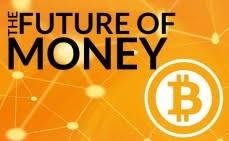
We resist new things as a man resists a new aftershave or a new pair of slippers — and for much the same reason…
We prefer known to unknown… old and reliable to new and improved… today’s certainty to tomorrow’s promise, however gaudy.
Perhaps that explains our irrational attachment to gold, the eternal money.
It also likely explains our delayed recognition of cryptocurrencies like bitcoin.
But the cryptocurrency market cracked the $150 billion mark last week. Its total market cap has exploded nearly 800% to date.
We can no longer avert our gaze…
Our agents now inform us that three Republican members of Congress seek legislation to elevate cryptocurrency in law.
The proposed legislation would ultimately allow cryptocurrencies meeting certain criteria to compete with the dollar, free from government monkeying.
These currencies would have to comply with anti-money laundering laws, for example.
In this vision, select digital currencies would take their place alongside the dollar — not beneath it. But how?
Cryptocoins News:
The bill will essentially protect digital currencies against harassment from the federal government, ensure currencies aren’t considered a form of security or investment and protect transactions using the currencies against taxation.
But the three Republican drafters have apparently requested anonymity due to the controversial nature of the proposal.
As one might expect, officials won’t surrender their dollar monopoly willingly.
And they’ve got their backs up high and stiff.
When has a monopolist welcomed competition, after all?
Llew Claasen is the executive director of the Washington-based Bitcoin Foundation. The organization seeks to promote the use of bitcoin around the world.
And Claasen says cryptocurrencies like bitcoin land a blow for monetary freedom:
Right now, we have no control over what central banks do with the money supply… so it gives us another option — aside from gold — that we can easily move.
Importantly, this fellow is no revolutionary out to dethrone King Dollar.
He merely seeks a free field in currencies… as it exists in soft drinks or autos or funeral homes or most anything else.
That competition would keep central banks on the jump, as competition forces established business to meet the prices and the quality of the striving upstart. Claasen:
I don’t think it’ll ever replace the system, but I do think it will give us the option of holding our monetary authorities to a higher standard than just being able to do what they want with our money.
Hi! I am a robot. I just upvoted you! I found similar content that readers might be interested in:
http://juniormininganalyst.com/battle-for-the-future-of-money/
Downvoting a post can decrease pending rewards and make it less visible. Common reasons:
Submit